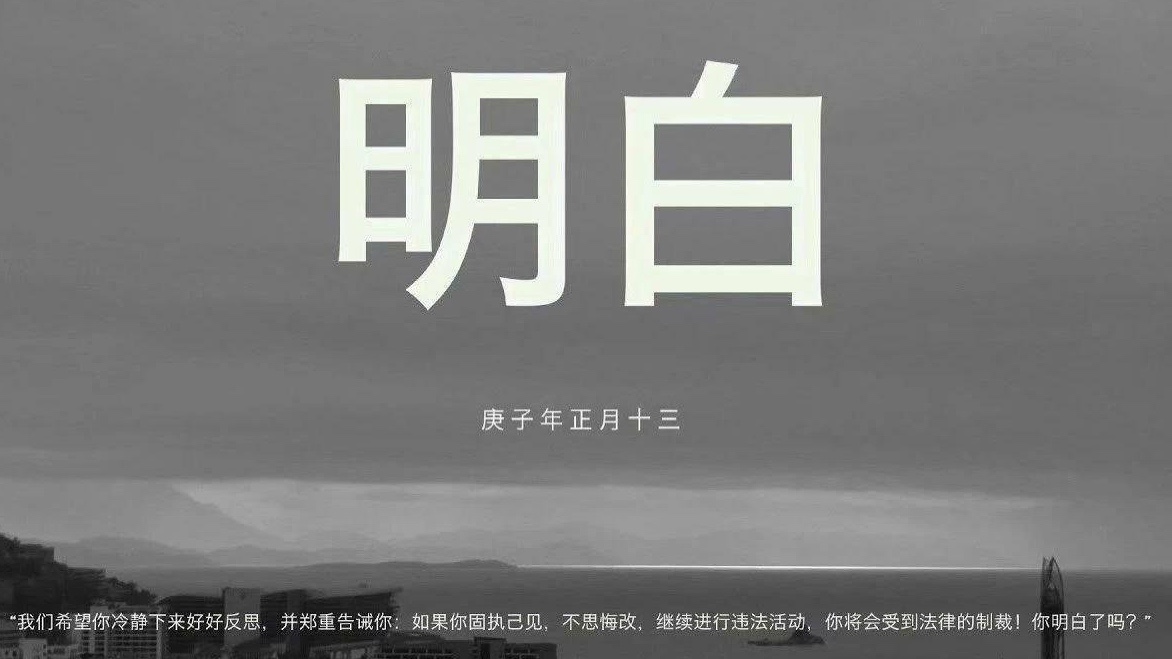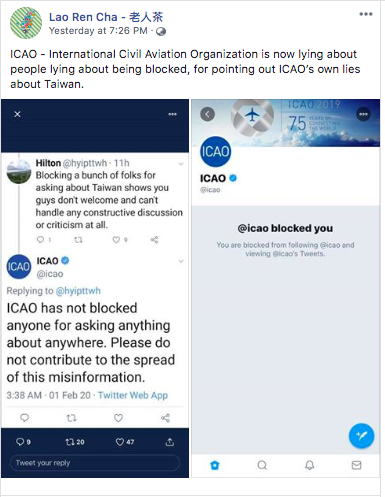 |
| Source: Facebook (I've seen it in several places, I have no idea who to credit for creating it) |
I noted in my last post that "we know nothing" about coronavirus, and I want to expand on that a little and talk about why.
...the international media is taking government data as gospel, which people in China know right now not to do. We don’t know what the fatality rate is because nobody knows how many people died before being diagnosed because they couldn’t get care. China keeps reporting “2.1%”, a number I don’t think anyone in China believes. We have no idea how contagious it is, either. We know nothing.
Let me be clear when I say "we don't know anything" - we don't know the fatality rate, as I noted. We also don't know yet where it came from (though as SARS originated in a wet market, coronavirus probably did too). We don't know how contagious it is, because if we don't know how many people have it, and how many have died from it, how can we know how easy it is to get?
We probably know that it's transmitted through aerosolized body fluids - that is, droplets of saliva from normal breathing - and you can get it by getting it on your hands and touching sensitive membranes in your face. At least, we think we know - that information also comes from China, but it seems highly plausible, even likely. In fact, it's hardly groundbreaking, that's how most colds and flus spread.
In fact, if you're going to be worried about anything, don't let it be coronavirus. If you are not in China, you probably will not catch it (even if you are in China, you might be fine). Be afraid that we don't know anything about anything, the people fighting it don't really know anything, and even if the CCP did know, they'd probably lie about it.
But why? We can blame two factors - the first is that the Chinese government and health care "system", such as it is, is completely overwhelmed and it's likely they themselves don't have a clue what these data actually are. The second is that the Chinese government thinks it can decide what is true, and attempts to push a political agenda even to their own detriment, as well as the world's.
So there are two layers of unreliability: the CCP is lying about data it doesn't even know itself.
The first reason isn't entirely China's fault. I mean, it is absolutely their fault that they covered up the initial outbreak, allowing it to get worse. If they've learned anything from SARS, it's manifested in a slightly faster path from "pretending this doesn't exist and punishing anyone who says otherwise" to "admitting we have a problem", not in eliminating the first stage altogether. It is also their fault that they've allowed the nation's lackluster health care - which is absolutely not "free" or even "public" as many Westerners believe - to fester for so long.
But it is not their fault that the virus broke out there; these things happen around the world. So it's not their fault that they are the epicenter, nor that they had to be the first to fight it, while the rest of the world got a heads-up and some time to prepare.
The second - their consistent lies and cover-ups when SARS should have been a lesson against such behavior - obviously is their fault. That should not need to be explained. The lying, yes, but also their consistent opposition to Taiwan's participation in the WHO and other international organizations (such as ICAO) where their expertise and superlative health care and responsiveness to the epidemic could be of great help in combating it.
With all that in mind, let me hazard a few speculations about these things we don't know.
First: coronavirus probably is highly contagious - we just don't know to what extent. We don't have enough data to compare it to the common flu, so please stop doing that. But the flu exists in China, and hasn't created an epidemic like this in previous years. If people going out for hot pot can infect much of their family and it's possible to contract it just transiting through Hong Kong, that points to potentially high contagion rates. It's possible that China is overreacting by locking down entire cities, but I doubt they'd self-destruct their own economy - through two sources I know that even Shenzhen is in full-city quarantine, which would be economically devastating - if they didn't have reason to worry.
But - how much of that contagion is simply because it is highly contagious, compared to how much is potentially caused by overwhelmed health care systems in China and poor public hygiene in general? I contracted bronchial pneumonia twice in one year in China; this is almost certainly a contributing factor. How much of it is due to an inability to practice appropriate epidemic-fighting hygiene protocol because masks, sanitizer and alcohol cleaner are all impossible to get, in a contagion zone?
I have no idea, but the fact that the virus seems to be spreading slowly and is basically under control in most of the rest of the world means that it probably can be contained, and isn't necessarily going to be a global pandemic. You might want to keep people in China in your thoughts, however. They don't deserve this and with every Chinese system on overload, it's probably going to get worse.
How much of the unknown fatality rate is caused by those same factors - an overwhelmed system, shortages of necessary hygiene supplies and poor general public hygiene, as well as paranoid quarantine policies that put people in non-virus-related danger and have resulted in at least one death?
It's impossible to say, but the fact that a lot of people are dying from coronavirus in China (though we don't actually know how many) and very few have died abroad shows that the environment and poor government response in China are factors.
That brings me to my final points - first, I don't even know how much to blame China for actions which seem malicious. That charter flight meant to bring at-risk Taiwanese back to Taiwan, that ended up being full of wives and children of evacuees (who also deserve to be flown out, but not at the expense of at-risk people)? You know, the one which ended up containing at least one confirmed coronavirus carrier? Some have accused China of purposely putting infected people on that plane as an attack on Taiwan, but I honestly think, in conditions that have been described as "wartime", that it's far more likely that they didn't have the wherewithal to intentionally put a carrier on that plane, and just let a person who'd bribed their way into a seat take what they'd paid for.
Second, if you are not in China, please stop freaking out. Taiwan's response has been exemplary - this is what open information and quick responses can accomplish. Japan has done a good job as well; Singapore is pretty good at this sort of thing. In fact, it seems that even if this coronavirus is highly infectious and highly fatal, that a strong public health response can keep it in check. Again, it's not China's fault that it was the epicenter - only that it spread in a government-imposed information vacuum.
That the rest of Asia has done a brilliant job of organizing a strong response before it could spread further is good news for the world.
This is probably not the last epidemic virus that will originate in China - the huge population, generally poor public health care, poor public hygiene (think bad plumbing, undrinkable tap water, rarely-cleaned public toilets, public spitting - though that has decreased markedly in the last decade) and prevalence of wet markets almost guarantee it. I certainly hope for the people of China that coronavirus is brought under control, though I also hope that they can overthrow that useless CCP and create a government more capable of responding to such outbreaks.
In other words, sunlight is in fact the best disinfectant. Open information, strong public health and quick action seem to be pretty effective in combating coronavirus, and they are protecting entire populations. I can only hope China figures out those three coronavirus 'vaccines' sooner rather than later.
But the ability of much of the rest of Asia to coordinate a containment response and share what information they have freely is good news for the rest of the world. Forget the "first island chain" and South Korea in terms of traditional defense - warships, airstrips, bases and whatnot. This is the front line when major epidemics originate in Asia, and rather than excluding a key node in that defensive chain from organizations like the WHO, maybe the world should stop pretending the CCP is a true ally, and start realizing that the rest of Asia - including Taiwan - should get more credit.



